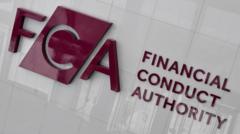A scathing report by a cross-party group of MPs and Peers has harshly criticized the Financial Conduct Authority (FCA), the UK’s main financial regulator, calling for a comprehensive overhaul of the organization.
The report, compiled over two and a half years and based on testimony from 175 respondents including whistleblowers, victims of scams, and current and former FCA employees, paints a damning picture of the regulatory body. The All-Party Parliamentary Group on Investment Fraud and Fairer Financial Services, consisting of 30 MPs and 14 Lords, concluded that the FCA is “incompetent at best, dishonest at worst” with actions that are “slow and inadequate” and leadership that is “opaque and unaccountable.”
Key criticisms include the FCA’s failure to:
– Properly investigate and act on whistleblower information
– Successfully implement its own transformation program
– Maintain an effective organizational culture
Current and former staff members provided particularly damning testimonials about the organization’s internal environment. One former employee described it as the “worst staff culture” in nearly 40 years of professional experience. Another current staff member reported being “criticised, bullied and sidelined” after attempting to raise serious concerns.
The report suggests that employees who challenge the “official line” are frequently bullied, discriminated against, or forced out of the organization. This toxic workplace culture appears to significantly impede the FCA’s ability to effectively regulate financial services.
The parliamentary group has proposed several reforms to address these systemic issues:
– Implementing a zero-tolerance policy for lack of integrity
– Establishing a supervisory council to review the FCA’s effectiveness
– Reforming the organization’s funding mechanism
– Overhauling the senior leadership appointment process
These proposed changes would require legislative action and aim to fundamentally restructure the FCA’s operations and accountability.
The report comes in the wake of multiple scandals where financial services firms have been accused of mistreating consumers and small businesses, with the FCA consistently criticized for insufficient intervention.
In response to the report, an FCA spokesperson told the Financial Times that they “sympathise with those who have lost out” but “strongly reject the characterisation of the organisation.” The spokesperson claimed the organization has “learned from historic issues and transformed” to better serve consumers, markets, and the broader economy.
Bob Blackman, co-chair of the parliamentary group, emphasized that the FCA has repeatedly been “blamed for doing too little too late – or nothing” to prevent financial misconduct.
The comprehensive report represents a significant challenge to the FCA’s credibility and may prompt substantial reforms in how financial services are regulated in the United Kingdom.




